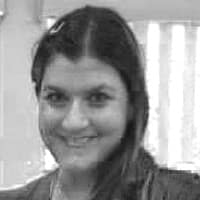Commercial Space Exec: Hands-On Work Can Launch Careers
Tyler Grinnell (’08) worked at Kennedy Space Center while he was still an Aerospace Engineering student at Embry-Riddle, juggling a full load of classes.
“That was a dream come true for me to be able to work on the space shuttle program while I was just out of my sophomore year,” he said, at the university’s latest Presidential Speaker Series event.
That real-world experience propelled Grinnell, who is now Virgin Orbit’s vice president of flight and launch, as well as serving on the university’s boards for the College of Engineering and the Department of Aerospace Engineering, to a successful career in the commercial space industry.
An Embry-Riddle alumnus, Grinnell talked about his unique career path and experiences working in the space industry, including roles at SpaceX, The Boeing Company and NASA at Kennedy Space Center. Ryan Kirby, a graduate student from the David B. O’Maley College of Business, moderated the discussion.
Every time that I think I’ve reached my dream, something else comes across, and it’s even better, and it’s nothing that has even been on my radar.
Congressman Mike Waltz, who serves on the House Committee on Science, Space and Technology, also spoke at the event. He said it is critical for the U.S. to continue making advancements in space, and Embry-Riddle plays an important role in training the next generation of aerospace industry leaders.
“This area — what I call the Space Triangle between Daytona, Orlando and Melbourne, with Cape Canaveral sitting in the middle of it — is booming,” said Waltz. “It’s so exciting the technologies that are happening.”
Originally from New York, Grinnell said he came to Embry-Riddle to study Aerospace Engineering in 2004 and landed a summer internship at Kennedy Space Center. He decided to continue to work there full-time while studying, when he learned he could get assistance with his education.
“For the next year, I took around 15 to 17 credit hours and worked full time,” he said. “I would not recommend that for everybody. It was pretty tough.”
Graduating in 2008, he had a friend who interviewed for a new company called Space X. Grinnell’s interest was piqued.
“About a month later, I had an interview with Elon (Musk),” he said.
Grinnell eventually became director of launch and recovery operations at SpaceX, overseeing the team of engineers, technicians and support staff who provide the integrated launch, recovery and pad operations for the Falcon 9 and Dragon vehicles. His team executed 20 successful missions within a 12-month period, as well as the successful launch and recovery of the first commercial astronaut crew.
Grinnell worked at SpaceX until fall 2020, when opportunity arose at Virgin Orbit, leading to his current role.
Virgin Orbit’s 747 carrier aircraft Cosmic Girl carries a LauncherOne rocket that launches satellites into orbit. Virgin Orbit has been launching from California, but it is planning a liftoff from the United Kingdom this summer.
His career has been in constant evolution, but it all began with that first internship at Kennedy Space Center, where he played a hands-on role in work that prepared him for positions of greater and greater responsibility.
Grinnell talked about how life can change in unexpected ways and said he has realized it is important to have a good work-life balance, especially now that he is a husband and father. Using his own path as an example, he encouraged students to follow their dreams, despite challenges they may encounter, and to take risks.
“Every time that I think I’ve reached my dream, something else comes across, and it’s even better, and it’s nothing that has even been on my radar,” Grinnell said. “So be extremely resilient to change.”

 Melanie Stawicki Azam
Melanie Stawicki Azam